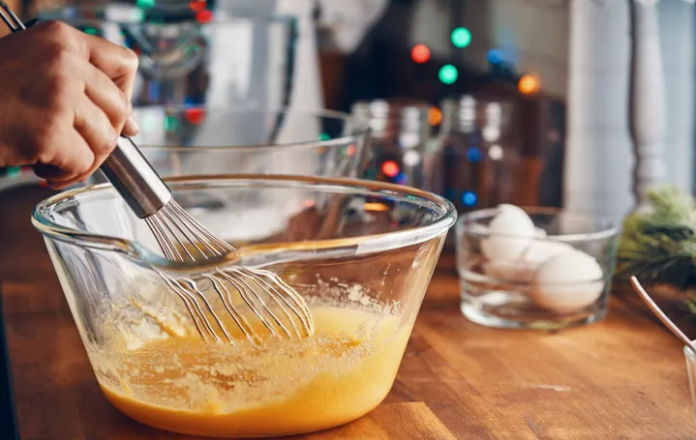It’s the holiday season, and that means it’s time to indulge in some festive treats like eggnog. This creamy, sweet, and sometimes spiked beverage is a holiday favorite for many. However, there are some risks associated with drinking eggnog, particularly when it comes to the use of raw eggs.
According to Bill Marler, a food safety litigator, raw eggs pose the biggest risk in eggnog as they can potentially contain salmonella, a harmful bacteria. Salmonella infections are a common occurrence and can cause symptoms such as gastrointestinal distress.
In severe cases, hospitalization may be required, and there have even been fatalities reported.
[ The 7 Best Eggs Substitute For Baking ]
While raw eggs are a concern, Dr. Don Schaffner, a Rutgers distinguished professor and food science specialist, highlights that the risks associated with eggnog are more related to the milk and cream used in its preparation.
Raw dairy products can also harbor salmonella, as well as other bacteria such as listeria, e.coli, and campylobacter.
It’s interesting to note that eggnog has a long history dating back to 17th century England. During that time, only the wealthy had access to eggs, milk, and alcohol. They would mix these ingredients together to create a celebratory drink for the holidays.
If you’re determined to enjoy a cup of eggnog despite the potential risks, there are ways to do so safely. Dr. Mildred Cody, a registered dietician nutritionist (RDN) and food safety instructor emerita at Georgia State University, suggests relying on pasteurization to reduce the risk of bacterial contamination.

Pasteurization is a process that involves heating the milk or cream to kill harmful bacteria. By using pasteurized dairy products in your eggnog recipe, you can significantly reduce the risk of foodborne illnesses. It’s important to note that relying on alcohol in eggnog to kill bacteria is not a reliable method.
When preparing or purchasing eggnog, it’s crucial to ensure that the ingredients used are pasteurized. This includes both the eggs and the dairy products. Reading labels and checking for the “pasteurized” designation can help you make safer choices.
Additionally, proper storage and handling of eggnog are essential. Eggnog should be kept refrigerated at all times, and any leftovers should be discarded after a few days. If you’re serving eggnog at a gathering, make sure to keep it chilled and avoid leaving it out at room temperature for extended periods.
While it’s important to be aware of the potential risks associated with drinking eggnog, it’s also worth noting that the majority of commercially produced eggnog is made with pasteurized ingredients. This significantly reduces the likelihood of bacterial contamination.
Ultimately, the decision to consume eggnog is a personal one. By following proper food safety practices, such as using pasteurized ingredients and practicing good hygiene, you can minimize the risks and safely enjoy this holiday treat.
Catch up with the latest news from The Times Post on WhatsApp by following our channel. Click here to join.















